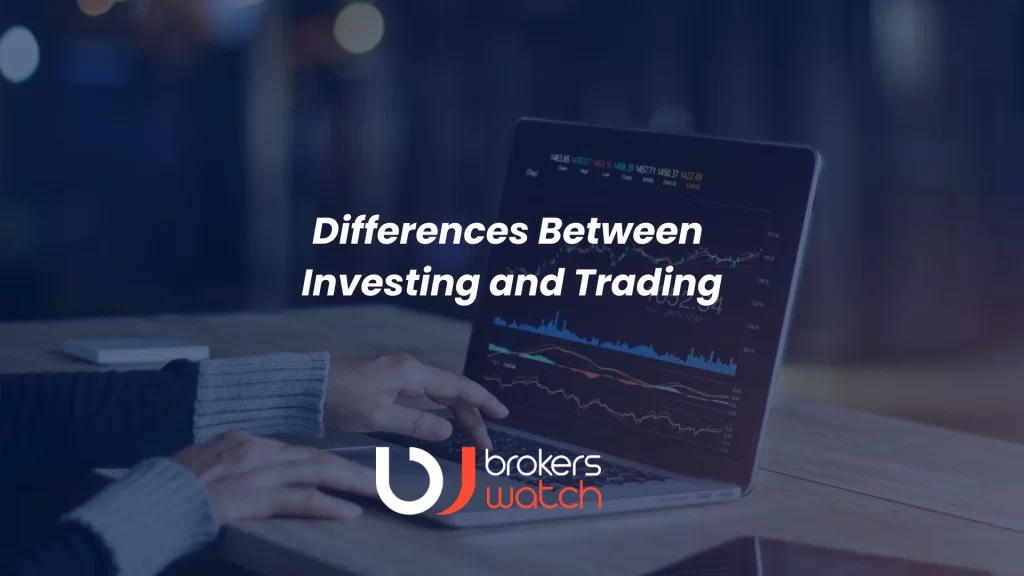Trading Vs Investing
What is the difference between Trading Vs Investing?
In the stock market, it is essential to have a basic knowledge when discussing making money. There is a confusion between the terms investing and trading and in this article we are going to explain both. An investor is the one who holds the positions or the security for a longer period time while the trader is the one who is influenced by the rise and fall of the securities in the market.
What is Investing?
Investing is a long-term approach, with the goal of building wealth incrementally over time using investment systems such as buying and selling portfolios of mutual funds, stocks, bonds and much more.
In addition, investments are held for years and even decades and have multiple perks such as interest, dividends and stock splits. The investment eliminates the risk of downtrends and market volatility as prices are always expected to rise, and since it is a long-term investment, investors do not need to worry about downtrends period.
Investors are interested in market fundamentals rather than daily uptrends and downtrends. Market fundamentals, such as price/earnings ratios (P/E), are of primary interest to investors over the long term.
What is trading?
Trading is a short-term, volatile process with frequent trades based on market movements. Relatively short term compared to long-term transactions such as mutual funds and bonds. Common examples of trading are stocks, commodities, currencies (foreign exchange), or other financial instruments. The advantage of trading over investing is more profit.
The basics of trading are to buy when the price is low and sell when the price is high, but there are some strategies such as reverse trading and short selling that only experienced traders can make big profits in a short period of time. However, before using such strategies is good to know that they are risky and are not recommended for beginners.
The Differences between Investing and Trading
The differences between investing and trading can be seen by taking into account the following 5 factors.
#1. The risk
When investing the approach is to buy stocks for a longer time and looking to grow the capital. In addition, the risk involved is lower because investors avoid making decisions during short-term volatility.
On the other hand, when trading the approach is to buy stocks in the short term and take advantage of mispricing in the market. The associated risks are high as traders seek to profit from highly unpredictable short-term market volatility.
#2. Period of Investment
Investing is for long-term and the idea is to hold and grow your investment. Investors usually hold their investments for years and maybe decades.
In trading, the idea is to make as little profit as possible with a large investment. In addition, traders they buy stocks for few seconds up to few months.
#3. Growth of Capital
In investing the focus is to create a wealth over a long term by minimizing the risk. In addition, the investor seeks regular passive income in the form of dividends and bonus payments in addition to long term capital gains.
Whereas, traders are focused on making short-term profits. Developing good and successful strategies every day over a long period of time can ultimately increase your capital.
#4. Effort Involved
In investing the more effort is involved in analyzing initially. Whereas in trading requires regular analysis to identify the narrowest mispricings and market changes.
Less effort is required in keeping track of your investments once you have invested but in trading achieving exceptional returns requires foolproof analysis and excessive effort to track investments.
In addition, investors must base their decisions on the company’s growth prospects. Buying and selling stocks requires analysis, the analysis frequency is high in the retail industry.
#5. Style of Analysis
In investing fundamental analysis is performed which involves analyzing the statements of accounts, key rations, cash flows and future growth prospects. In trading the technical analysis is performed which involves analyzing the charts, graphs and past movements and the decisions are taken based on the patters formed in the charts.
Should I invest or should I trade?
Investing is simple game compared to trading. Trading requires deep market knowledge, real-time analysis, and the ability to identify price action in the blink of an eye.
Retail investors who want to increase their passive income without spending a lot of time analyzing should invest their money. As an investor, you will have more opportunities to grow your capital. Those with the right knowledge and a good understanding of the market can try their luck in trading.


